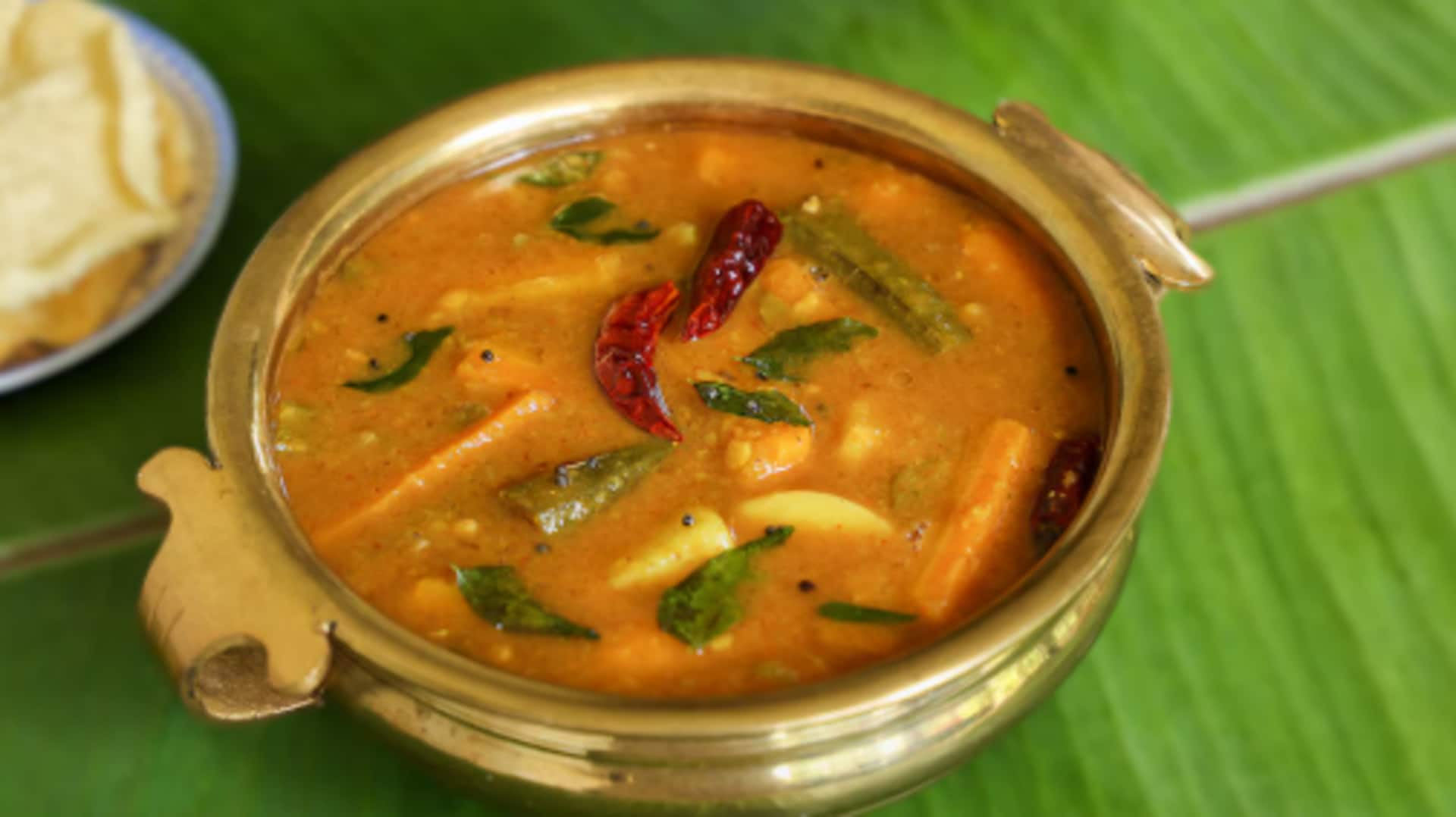
Sambar's journey: Origin, history, and popularity
What's the story
A staple of Tamil cuisine, sambar is a delicious lentil-based stew that has traveled from kitchens to tables across the globe. Famous for its rich blend of spices and vegetables, sambar is not merely a dish but an inseparable part of Tamil culture. This article traces the journey of sambar, highlighting its origins, ingredients, variations, and the cultural importance it holds in Tamil households.
#1
Origins and historical significance
Sambar's roots lie in South Indian kitchens. The dish is said to have first been cooked in the royal kitchens during Maratha ruler Shahuji's time. The lentils mixed with tamarind and spices created a unique taste that caught on quickly. Over the years, sambar became a staple food item across South Indian states, where each added their own regional touch to it.
#2
Key ingredients and preparation
The star ingredients of sambar are lentils (typically pigeon peas), tamarind pulp for tanginess, and a medley of vegetables such as drumsticks, carrots. A special spice mix called sambar powder is essential for its signature taste. It is made by boiling lentils until soft, adding vegetables and tamarind juice, and seasoning it with mustard seeds and curry leaves tempered in oil.
#3
Regional variations across India
While it hails from Tamil Nadu, sambar has many regional adaptations across India. In Karnataka, it is generally sweeter, thanks to the addition of jaggery; Kerala's version usually has coconut paste; Andhra Pradesh opts for spicier versions with extra chilies. Each variation depicts regional taste while retaining the soul of this beloved dish.
#4
Cultural importance in Tamil Nadu
In Tamil Nadu households today—especially during festivals or family gatherings—sambars are culturally significant beyond them being just another meal option on plates served along with rice or idlis/dosas (fermented rice cakes). It stands for hospitality when offered generously at weddings or ceremonies where guests are treated like gods as per ancient traditions still widely practiced across southern regions even now!